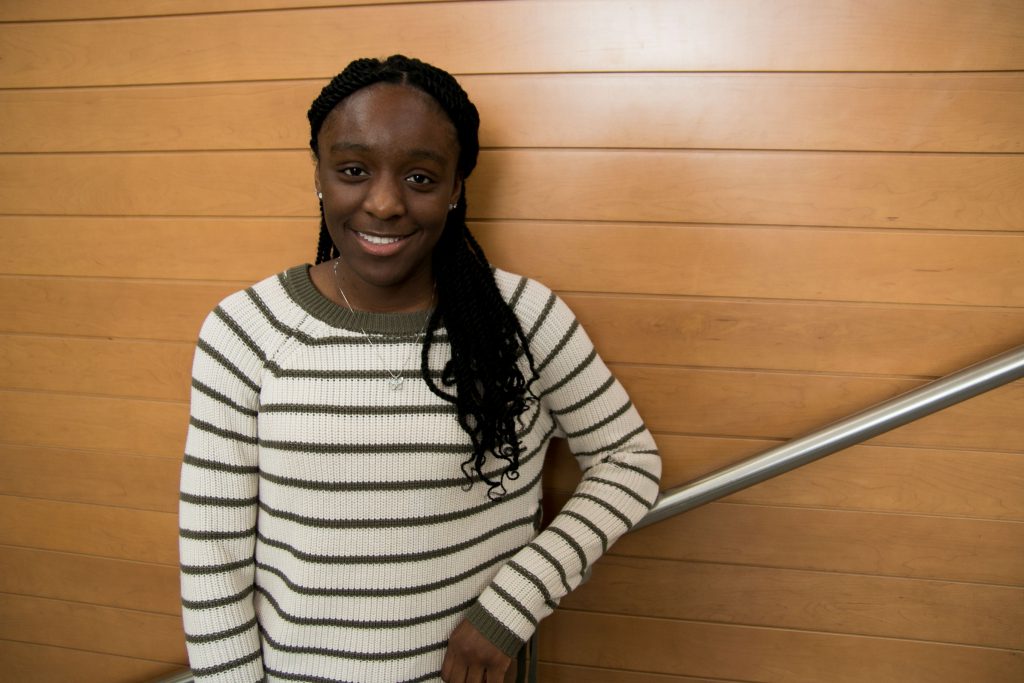
Ra’Vynn Waters is a sophomore majoring in nursing at Binghamton University. Waters is the second vice president of BU’s chapter of the NAACP. Additionally, she is a youth board member on the organization’s national board of directors. Waters got her start in the NAACP in her hometown in Rockland County, New York in 2013.
Prism: What was the Binghamton University NAACP chapter like before, and what are you striving to be now?
Ra’Vynn Waters: I am still learning about the Binghamton chapter right now, it was silent for about two to three years before last spring. Last spring, they got their name on campus and did a few things, such as raffles. This fall was kind of the big, “Alright, let’s get out there and start doing [general body meetings].” Right now, we are just doing [general body meetings], trying to see what the college campus is interested in and see how they take on our game-changers because as the NAACP, we have six game changers that are pillars of our organization. Those pillars are economic sustainability, health, education, criminal justice, voter registration and youth representation. With those game changers, we try to steer our [general body meetings] and make sure we hit those six game-changers throughout the years. For example, we did a [general body meeting] on colorism to educate people about the mental health and education about how the black community is interacting with each other.
P: In what ways do you see the NAACP standing out from other multicultural organizations?
RW: I think right now we are still trying to get over our intro year. A lot of us are, well, I am new, and a lot of us haven’t been on an e-board taking action. A lot of our e-board members are transfers, so they had last year where they got to interact and see the different clubs on campus and now everybody is on e-board. Now, they are a part of a club and actually taking action themselves and not just attending the events. I think the club is definitely trying to make a name in that we want to have a political stance and make sure people get educated about health and making sure that everyone is getting a fair education both here and off campus, reaching potential kids that are trying to come to our school.
P: Are there any other organizations you’re involved in besides the NAACP?
RW: Yes, I am involved in Pretty Girls Sweat [PGS]; I am interning for them right now. I found them at University Fest in the fall. It was a great thing I ran into them, because I like working out and I knew the gym was an expense that I couldn’t pay. I was happy to see their table at University Fest and say this was a great organization, and I saw a promotion for the organization before, but it was just a shock to see that it was on a Binghamton University campus. Like, you would see it at Rutgers and other big campuses but you just don’t expect it to be at a SUNY school that not that many people know about. So it was nice to see PGS. I do attend other events, however, NAACP and PGS are the two main organizations that I deal with.
P: Do you see yourself continuing volunteer work once you’re out of school?
RW: Yes, definitely. I would always think about what I can do in the future, on my off days, off hours and when I could volunteer and go do that. I will love to continue with Habitat for Humanity, and NAACP will not let me leave, so that’s not even a question. No matter if I am a nurse or a medical doctor, in the future I feel I still want to be an EMT, even if it’s volunteering in a local community because I just love that adrenaline rush — when you’re going to help somebody, when you’re flying down the highway — it’s something that is a part of me and I just love doing it. Anything I love doing now, and I would love to continue to do it and I don’t mind also maybe mentoring people in the future and just sharing my journey with them because not everybody has the most perfect journey and I just love to see that people just express themselves and show themselves to others.
PRISM has edited the interview for length and clarity.


